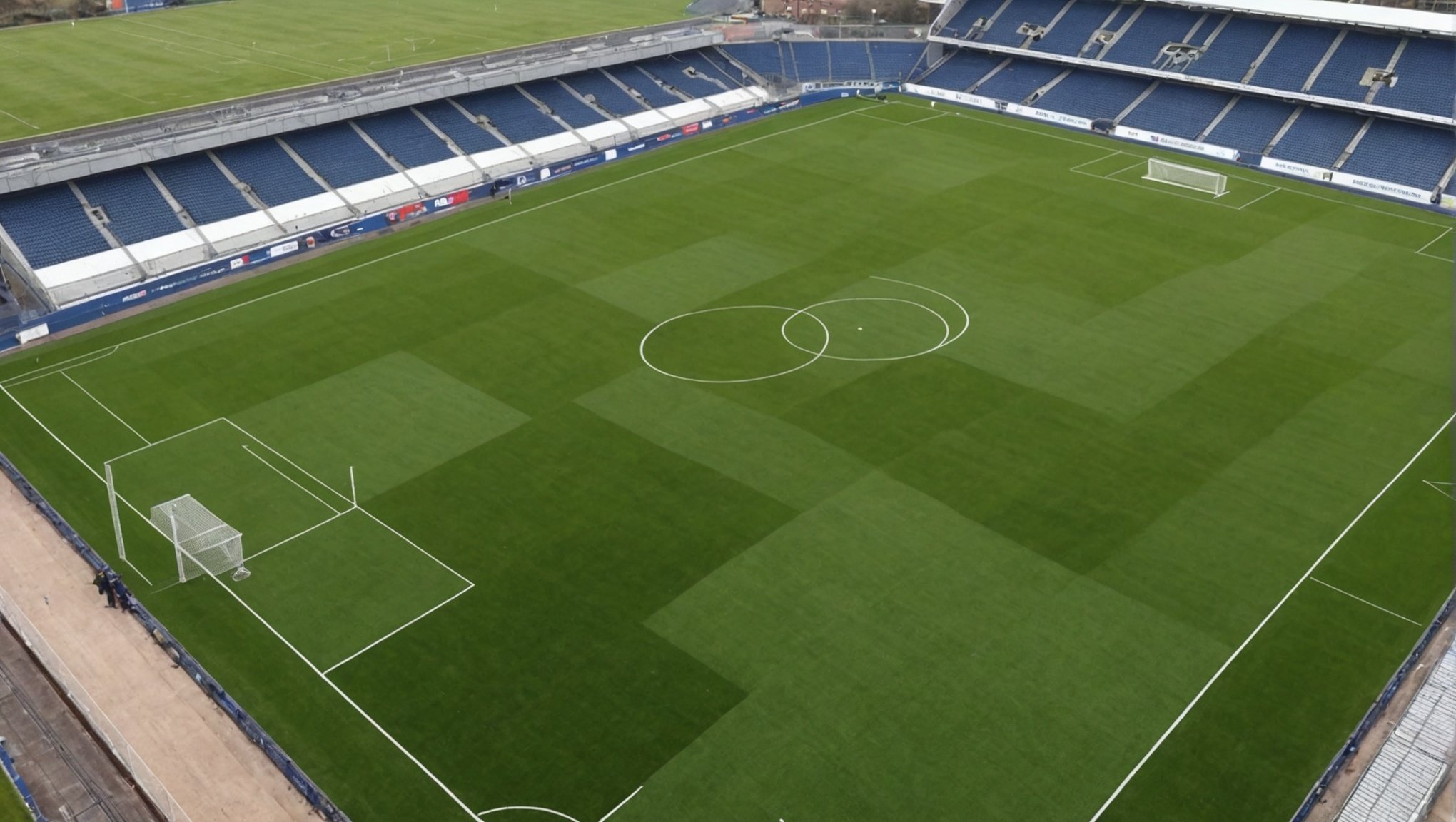Overview of Eco-Friendly Turf Management Practices
Incorporating eco-friendly turf management in sports facilities is not just an environmental trend but a sustainability imperative. Such sustainable practices focus on reducing environmental impact while maintaining the high-quality standards expected of these facilities. Key principles of eco-friendly turf management include using organic fertilizers, implementing water management techniques like rainwater harvesting, and enhancing soil health through natural methods.
Green strategies are also crucial; this includes minimizing chemical pesticide use by employing biological control methods. By adopting these techniques, facilities can significantly decrease their ecological footprint. Moreover, the benefits extend beyond environmental impact; eco-friendly practices can result in long-term cost savings through efficient resource utilization.
This might interest you : Exploring the Cutting-Edge Trends in Sports Nutrition for UK Athletes
Furthermore, the use of sustainable practices also promotes healthier playing surfaces, which can lead to enhanced athlete performance and safety. Implementing these eco-friendly strategies not only supports environmental sustainability but also aligns with the growing expectation for sports institutions to be environmentally responsible. This dual benefit makes sustainable turf management a practical and advantageous choice for sports facilities globally.
Innovative Techniques for Turf Management
In recent years, turf management methods have evolved significantly, thanks to innovative techniques and the integration of sustainable technology.
In parallel : Exploring the Legal Landscape of Sports Contracts for Athletes in the UK
Organic and Natural Fertilizers
A shift towards organic fertilizers is transforming sports facility maintenance. Organic fertilizers are not only environmentally friendly, but they also enhance soil health by promoting microbial life. Natural fertilizers, such as compost, release nutrients slowly, reducing the risk of leaching and promoting long-term turf vitality.
Water Management Strategies
Efficient irrigation systems are crucial in modern turf management methods. Advanced systems like automated sprinklers and moisture sensors ensure optimal water use by adjusting to weather conditions. This not only conserves water but also prevents overwatering, which can lead to turf diseases and resource wastage. Sustainable technology in irrigation delivers both environmental benefits and cost savings.
Integrated Pest Management
Integrated Pest Management (IPM) emphasizes the use of natural predators to control pests, minimizing the need for chemical pesticides. Introducing beneficial insects, such as ladybirds, can effectively manage pest populations without harming the ecosystem. This sustainable approach aligns with modern turf management methods, prioritizing ecological balance and long-term turf health.
Case Studies from UK Sports Facilities
Exploring the successful implementations of sustainability initiatives in UK sports facilities reveals how impactful these efforts can be. For instance, a popular sports venue in London integrated advanced energy management systems to reduce overall consumption. This not only led to cost savings but also significantly decreased the venue’s ecological footprint.
Practical examples highlight the essential role of stakeholder involvement. Local councils and community groups often collaborate on projects, ensuring tailored solutions that resonate with both the environmental goals and the needs of local patrons. Such partnerships are crucial, enhancing community engagement and fostering a sense of shared ownership towards sustainability efforts.
In one case study, a football stadium in Manchester successfully reduced its waste through recycling initiatives by working closely with suppliers and fans. These practical examples reflect a commitment to sustainability, showing how sports facilities can serve as role models in ecological innovation and efficiency.
Each case study from the UK sports facilities not only measures direct cost savings but also assesses long-term ecological impacts. These include reductions in carbon emissions and resource usage, exemplifying how practical these case studies are in the real world, offering replicable solutions for similar settings.
Trends and Technologies Shaping the Future
In the world of turf management, rapid developments are driving significant changes, particularly in technology in sports and future of sustainability. With a growing focus on ecological balance, cutting-edge solutions are being embraced more than ever.
Advances in Soil Health Monitoring
Improving soil health impacts turf quality profoundly. Emerging technologies, such as sensors and drones, offer precise data on soil conditions. This information aids in making informed decisions, enhancing turf health, and promoting environmental responsibility.
Smart Irrigation Systems
Smart irrigation leverages technology to optimise resource use. With systems that adjust based on weather patterns and soil moisture, it’s no surprise they are becoming integral. These technology in sports ensure water conservation— a remarkable leap toward sustainability.
Use of Biodegradable Materials
Biodegradable materials are reducing environmental footprints. As a trend, they are reshaping practices by offering durable solutions that break down naturally. These materials prevent soil contamination, supporting a more sustainable approach in turf management.
Data analytics plays a pivotal role in the trends in turf management. The precision it provides enables tailored strategies that increase efficiency. As smart technologies become more prevalent, their adoption presents compelling benefits for environmental conservation.
Cost-Effectiveness of Eco-Friendly Strategies
Implementing eco-friendly strategies offers compelling economic advantages. Initially, the cost-effectiveness of these strategies might raise concerns due to upfront investment costs. However, when considering long-term savings, the picture becomes optimistic. Sustainable investments often lead to reduced energy consumption and operational costs, resulting in significant savings over time.
Sustainable management practices such as efficient resource management can provide substantial economic benefits. By minimizing waste and optimizing energy use, organizations often find that they can lower costs while maintaining or even enhancing productivity.
Moreover, there are various funding opportunities and grants available to offset the initial costs of launching eco-friendly projects. These financial aids can significantly reduce the investment barrier, making sustainable practices more accessible. Governments and environmental organizations frequently offer incentives to encourage the adoption of green technologies.
In conclusion, embracing eco-friendly strategies not only aligns with environmental responsibilities but also proves financially advantageous. Sustainable investment is a forward-thinking approach that yields both economic and ecological benefits, ensuring a prosperous and environmentally conscious future.
Relevant Regulations and Standards
Understanding the regulations in turf management is crucial for maintaining both environmental responsibility and operational efficiency. These regulations ensure that turf management practices align with environmental standards and promote the sustainability of natural resources.
Government Regulations and Support
The UK government has established various regulations to guide turf management practices, focusing on water resource management and pesticide use. The aim is to protect the environment by minimizing harmful impacts.
Industry Standards and Best Practices
Adhering to established industry standards not only improves the quality of turf management but also ensures compliance with legal requirements. Best practices include using eco-friendly products and techniques that reduce environmental footprint.
Certification Programs for Sustainable Management
Sustainable guidelines are further reinforced by certification programs, which serve as benchmarks for commitment to sustainable practices. By adhering to these, businesses demonstrate their dedication to upholding high environmental standards, gaining trust and credibility within the industry. Certification options often address key areas such as resource conservation and pollution reduction, highlighting their importance in maintaining ecological balance. Progressing towards sustainability is encouraged through these comprehensive frameworks.
Insights from Experts in the Field
Eminent voices in sustainable turf management underscore the pivotal role of ongoing education in nurturing industry standards. Professionals highlight that understanding the nuances of turf health is not just about experience but also acquiring the latest sustainable turf management advice. This involves continuous learning and adapting to new methods that enhance ecological stability.
Turf management experts advocate for collaboration across stakeholders as a cornerstone for success. By fostering partnerships between researchers, managers, and policymakers, knowledge-sharing becomes seamless. This collective effort ensures the effective implementation of eco-friendly practices, enhancing both turf quality and environmental benefits.
Furthermore, insights from industry veterans emphasize that staying updated with cutting-edge technology is crucial. This allows for the seamless integration of innovations in sustainable turf management strategies, ensuring that the maintenance practices are both effective and efficient.
Thus, the combination of expert insights and sustained collaboration propels the field forward, ensuring that the management practices meet current environmental and technological demands.






